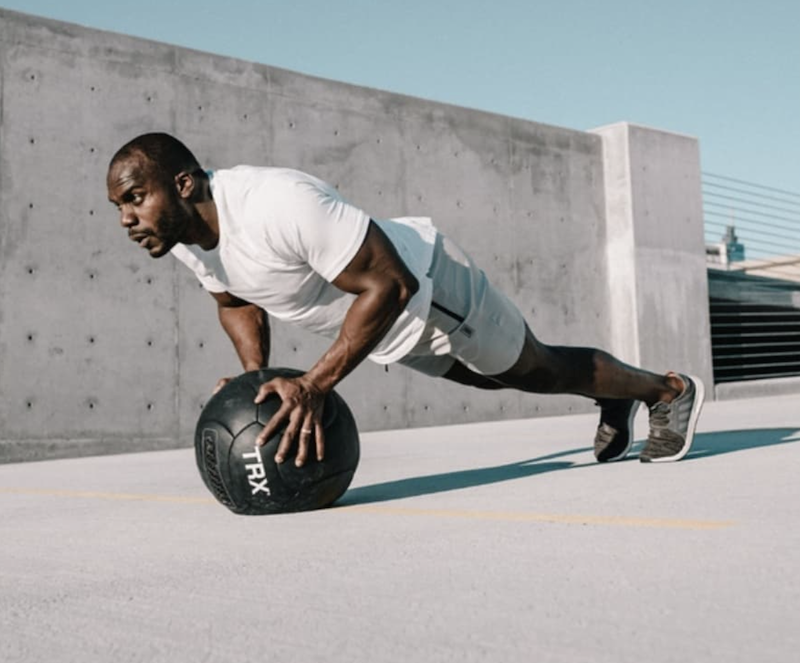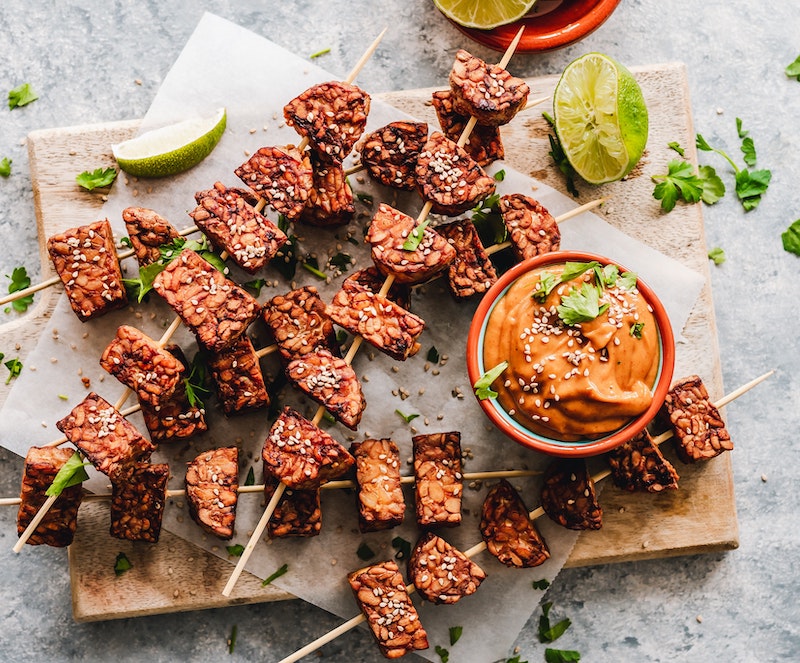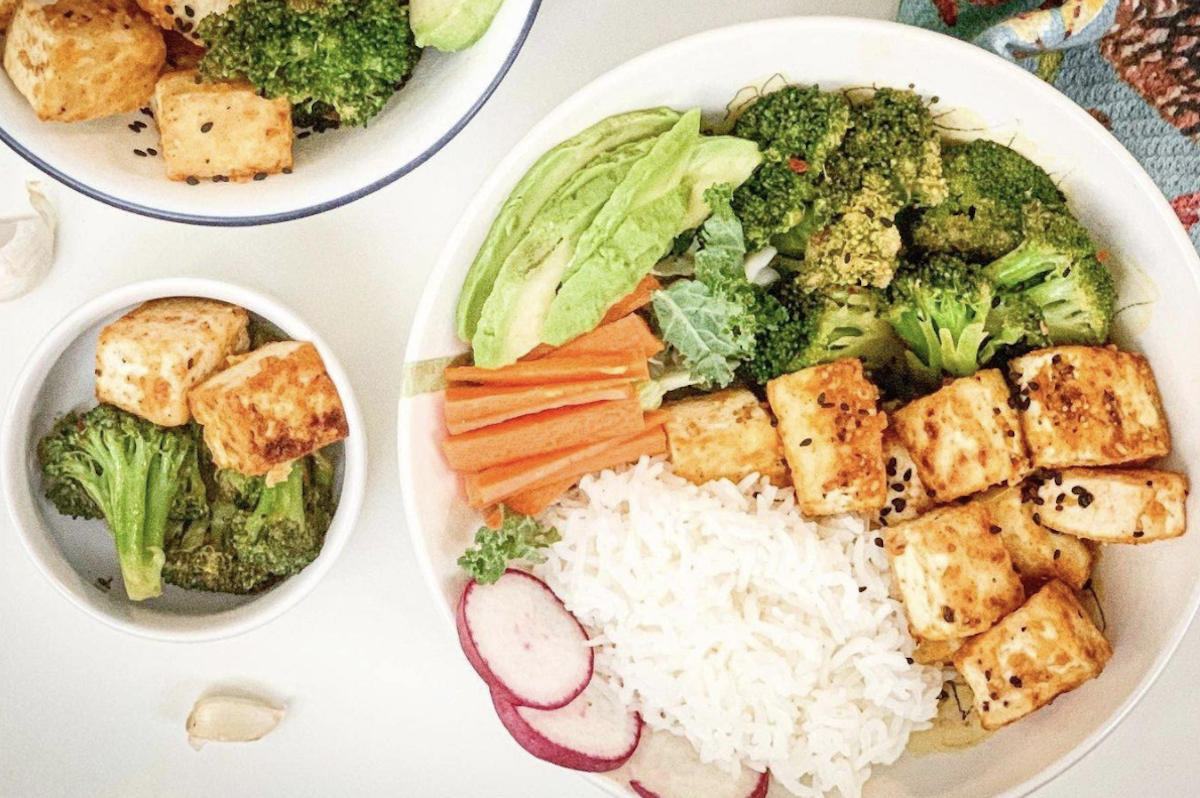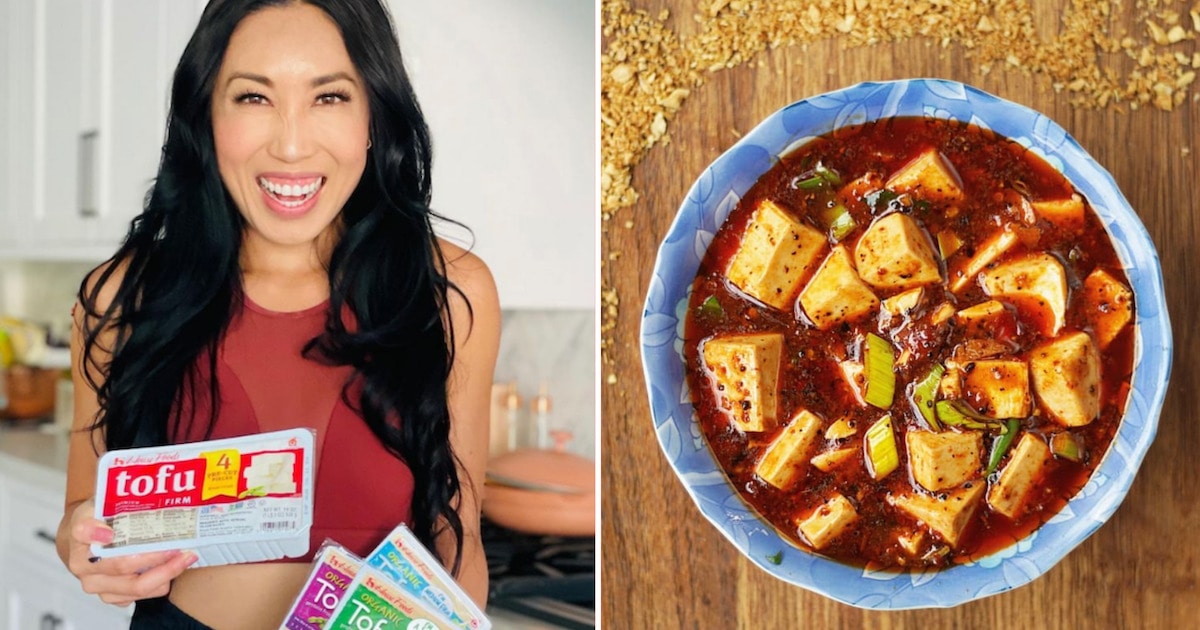As long as people keep asking about it, we’ll keep talking about protein. The topic is a seemingly endless black hole of conversation when it comes to vegan diets, but it doesn’t really have to be that complicated. A vegan diet can contain a large number of protein sources, and there is no need to worry about developing a protein deficiency or experiencing a lack of variety in your meals. All whole foods contain protein (we’ll repeat that later, because it bears repeating), and here are the best vegan protein sources to meet your daily needs and satisfy omnivores’ relentless questions about where vegans get their protein.
 LyfeFuel
LyfeFuel
How much protein do you need?
Protein deficiency is not usually a problem in first world countries. That is not to say that protein is not important, because it is extremely essential for life and optimal health, but industrialized nations tend to place a huge emphasis on an issue that does not really affect them. America’s obsession with protein is a bit like Southern Californians’ concern about hypothermia: It’s not completely out of the question on a cold January night, but it’s highly unlikely. For the vast majority of people, it is not necessary to count their protein intake, but if you are curious, it is quite simple to calculate. The USDA recommended daily allowance is 0.36 grams of protein per pound of body weight. To calculate your protein needs, multiply your weight in pounds by 0.36 and the result is the number of grams of protein you need each day. For example, a 130-pound woman should aim for 46.8 grams of protein per day, and a 170-pound man should aim for 61.2 grams of protein per day. Note: This formula is designed for the “average” individual, someone who can exercise occasionally, but not at high intensities or most of the week. Those who are more active, who exercise at a moderate to high intensity at least four days a week, should aim to consume 0.7 grams of protein per pound of body weight. Here’s a general guideline: To really optimize performance, a plant-based dietitian can help you fine-tune your exact protein needs based on your activity level.

Are plant proteins complete proteins?
Complete versus incomplete protein isn’t discussed much in the vegan community, other than responding to omnivores in their attempt to make plant-based proteins appear inferior to animal-based proteins. Most people, omnivores or not, do not pay attention to the amount of complete protein compared to incomplete protein that they consume on a daily basis, but as soon as someone goes vegan it becomes a huge concern for the outside looking towards inside. Dear physicians, including Dr. Neal Barnard, Dr. Colin Campbell, and Dr. Michael Greger have emphasized the fact that as long as you eat enough calories and vary your diet, you will meet your protein needs regardless of whether you consume complete or incomplete protein. .
If you suddenly wonder if the foods you enjoy are complete or incomplete, this is what you need to know. Protein is made up of 20 different building blocks known as amino acids. The human body can produce 11 of these amino acids on its own, but the other nine must be obtained from food sources. These nine building blocks are called essential amino acids. Not all foods contain all nine amino acids. They are called incomplete proteins. Foods that contain all nine essential amino acids are called complete proteins. With the exception of foods like soybeans, hemp, quinoa, chia seeds, pea protein, and buckwheat, most plant-based foods lack some essential amino acids. That is not to say that they are inferior sources of protein, because people eat a variety of foods and incomplete protein sources naturally supplement each other. Think rice and beans, hummus and pita bread, peanut butter sandwiches… the list is endless. Eat a varied diet, eat enough calories to support your body, and you won’t have to worry about complete or incomplete protein.

Best Vegan Protein Sources
All whole foods contain protein, but some contain significantly more than others. This list is not exhaustive, you would need a textbook to list them all, but here is a list of some of the best high-protein vegan foods.
seitan
This meaty vegan staple is made primarily from vital wheat gluten, which is extremely high in protein. There is a whopping 18 grams of protein in a simple two-ounce serving of seitan. Many vegan meats rely on seitan for its chewy texture, but you can also buy it in its original form and season it to your liking (try Upton’s Naturals). Those who enjoy DIY can make their own seitan quite easily. Here is a recipe if you like.
Beans
Beans are not a singular food, they are a category. While many are content to stick to a few varieties, there are dozens of types of beans that have a unique taste and texture, not to mention a significant amount of protein. Lime, lima, black, pinto, kidney, cannellini, and chickpea beans contain 12-15 grams of protein per cup, cooked. While not called kidney bean, black-eyed peas are also high in protein, weighing in at 13 grams per cup.
tofu
The protein content of tofu fluctuates slightly, as it depends on the type of tofu you buy. The firmer the tofu, the more protein, as firm tofu is more concentrated than the softer options. For example, a three-ounce serving of extra firm tofu contains nine grams of protein, while silky tofu is around four grams. Many brands (like Wildwood) also offer a high-protein variety, and those contain more than 14 grams of protein.
Tempeh
Finish off your tempeh bacon, it’s high in protein. Also made from soybeans, tempeh naturally contains a substantial amount of protein – a three-ounce serving contains 18 grams! This meaty and crumbly vegan protein source makes an excellent base for a good marinade. Try it for yourself with this Smoked Tempeh Peanut Satay Recipe.
Protein powder
While it is not a whole food, there is no denying that plant-based protein powder will help you meet your daily quota. Most vegan protein powders contain 15-20 grams of protein. If you are looking for a complete protein product, opt for soy or pea protein based brands like 22 Days Nutrition or NuFYX.
Spirulina
This powdered seaweed does more than turn smoothie bowls a pretty blue – it’s a super concentrated protein source. Just one tablespoon contains four to six grams of protein (the green variety is lower on the scale, while the blue spirulina contains slightly more protein). Next time you’re at a smoothie bar, opt for the Spirulina menu item (or Blue Majik, as some call it) for an extra dose of protein.
Plant-based milk
The latest US Dietary Guidelines, Revised in late 2020, now state that fortified soy milk is nutritionally equivalent to cow’s milk. This is huge, as it completely undermines one of the dairy industry’s strongest arguments for drinking milk. Cow’s milk has eight grams of protein, it’s true, but so does soy milk. Pea milk also packs eight grams of protein, and some brands (like Califia Farms and Silk) are fortifying their plant-based milks with even more protein, up to 10 grams per eight-ounce serving.
Nuts, seeds and butters
Like beans, the category of nuts and seeds is huge. When looking for the seeds with the most protein, opt for a 30-gram serving of hemp seeds (12 grams), chia seeds (seven grams), and flax seeds (nine grams). Protein-rich nuts include peanuts (7 grams), almonds (6 grams), and Brazil nuts, cashews, walnuts, pine nuts, hazelnuts, and pistachios (all 4 grams) per 1-ounce serving. Nut and seed butters have similar protein profiles.
Nutritional yeast
Affectionately known as “nooch” in vegan circles, these yellow flakes are packed with nutrients. Two tablespoons of this cheese-flavored seasoning equals five grams of protein. Not sure what to do with a pot of nooch? See 16 ways to use nutritional yeast.
Non-dairy yogurt
Like non-dairy milk, dairy-free yogurt can contain a good amount of protein, depending on the brand. For the highest dose of protein, look for a product with added protein, such as Kite Hill Protein (11 grams) or Chobani Oat (seven grams).
Quinoa
If you are looking to increase your protein intake, swap the rice for quinoa. This tough grain contains eight grams of protein per cooked cup. Quinoa is also an excellent and satisfying porridge. Swap your next bowl of morning oatmeal for this tummy-warming Sticky Banana Bread Quinoa Breakfast Bowl.
Lentils
No matter the color (green, brown, yellow or red), lentils are protein powerhouses. A quarter cup serving (dry) will provide 10 to 12 grams of protein, depending on the variety. Not sure how to prepare them? Start with this easy vegan kale and lentil stew.
Spinach
The cartoon may have exaggerated the powers of spinach proteins a bit, but there was some truth to the philosophy of Popeye the sailor who swallows spinach. Leafy green provides just over five grams of protein per cooked cup. Go ahead and be liberal about it. We love adding it to smoothies, soups, pizzas, pastas, and large salads.
Bread
Excluding the white varieties (sorry sourdough enthusiasts), the bread can top up your daily protein quota. Varieties like whole wheat bread and Ezekiel bread contain four and eight grams of protein per slice, respectively. Don’t be afraid of bread, just choose the higher protein options.
Vegetables
Spinach isn’t the only vegetable with a decent amount of protein. Vegetables like broccoli, Brussels sprouts, and asparagus are around four grams of protein per cup; collard greens contain 5 grams of protein per cup; and a large potato has just under eight grams of protein. There is more than one reason to eat vegetables!
For more information on healthy vegan eating, read:
9 fabulous ways to make tofu
Is soy milk making a comeback?
5 great ways to eat more calcium
JUST LAUNCHED! Vote for your favorite vegan products at the 2022 VegNews Veggie Awards.
Vote now
JUST LAUNCHED! Vote for your favorite vegan products at the 2022 VegNews Veggie Awards.
Vote now


